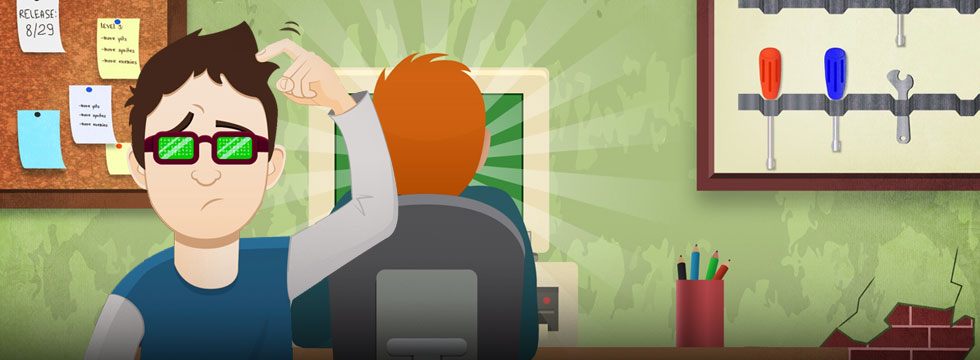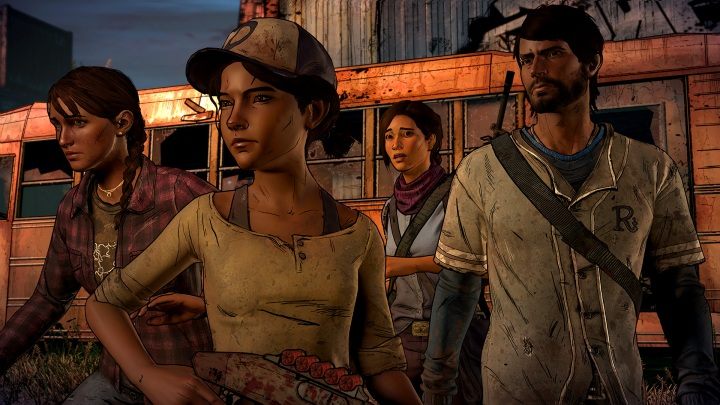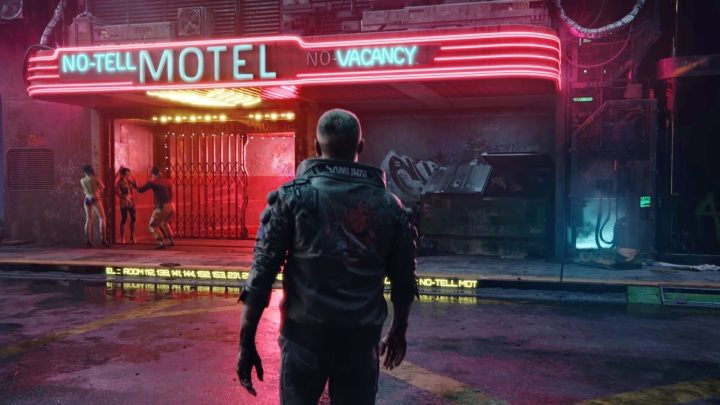Pathology has become the norm. Spiral of crunch: the price of a great game

- Spiral of Crunch – Do Games Have to Be Created at the Expense of Employees?
- Pathology has become the norm
Pathology has become the norm
And such a crunch, as recent months proved, has become the norm in the industry. Thanks to the information revealed by the well-known journalist Jason Schreier, we know that the failure of Anthem was largely a matter of crunch – BioWare's management couldn't decide for years what, in principle, this game should be, so the vast majority of the final product was created by a desperate push in the last months before the premiere. According to Schreier's revelations, the company operated like that for years – a chaotic, almost pointless production process and the "BioWare magic" (and overtime of rank-and-file employees) would eventually translate into a wonderful game. Magic ran out eventually.
The high-profile fall of Telltale Games at the end of 2018, when two hundred employees learned of the studio's closing on a day's notice, losing not only their jobs, but also insurance, as well as the chances of any compensation, allowed them to speak freely about what things looked like in the company. And what it looked like was that too few people were assigned to each of Telltale's many projects, being constantly forced to work overtime to meet the incredibly tight deadlines. Knowing this reality makes it easier to understand why the Studio's latest games have been extremely repetitive.

The problem is that crunching sometimes works. This phenomenon also occurred during the production of games that turned out fantastic. The wives of Rockstar San Diego employees already in 2010 published an open letter online lashing out at how the company exploited their husbands. Not much has changed – eight years later, Jason Schreier reached dozens of people engaged in the production of Red Dead Redemption 2, who revealed that creating the most reliable virtual world meant constantly working at full capacity in a company where taking a single day off was frowned upon by management – even if there really was nothing to get done, you had to sit at your desk until the boss left (never leaving too soon).
Crunch was price also the price of success of Fortnite, Mortal Kombat 11, Uncharted 4 and Call of Duty: Black Ops 4. Things were seemingly the same with The Witcher 3, although CD Projekt RED at least rewarded them with higher paycheck. Crunch is one of the reasons that many industry veterans run away from large companies and either try their hand at the independent production segment, or completely abandon game development – a few years in a large studio can be enough to deprive a person of all the enthusiasm and desire for further work in the industry.
Why does almost no one pay for overtime?
This is the fault of American law. Most employees of development studios in the US are hired on a contract that only stipulates the monthly wage, not the hourly wage, which frees the employer from rewarding additional worktime. The only exception is the state of California, where developers are protected by special rights and can count on the minimum hourly rate – since 2008, it is $36.
The crunch revolves
Thus, you can get the impression that crunch is persistent in all major companies. Of course, this is not true – pathologies just tend to generate a lot of noise which skews the real picture of the situation and makes it seem to us that the scale of this phenomenon is greater. However, there's no hiding that crunch has become a big and serious problem. Even more so, because it's a viscous circle.

If most of the companies apply this practice regularly, thus increasing their efficiency (so what it's at the expense of employees...), it creates a standard to which competition must inevitably adapt. The gaming industry may not be growing as fast as it did 10, 20, or 30 years ago, but it is still an extremely dynamic industry. In this world, even the biggest, most famous, and wealthiest can barely afford to keep up with the competition.
So if someone crunches, then others are forced to follow suit. Because what other choice they have? To keep up, they can hire more employees at the least. But this means a significant increase in production costs and in complexity of projects – every next person working on the game means additional organizational difficulties, a greater risk of errors, blurring of responsibility or communication problems. The constant crunch in this situation is the lesser evil for the producers – before the team is burned out, they're likely to finish the job. And we have a vicious circle! A spiral of crunch.
Break the cycle
Indeed, the only force that can stop this is the public opinion – that is, we, the players. And players, unfortunately, are generally not interested in the fate of developers. For many of us, it is more important that the expected game is released as soon as possible. When there's a delay, we are very happy to call the creators "lazy leeches." Call them traitors when they try to fight for their own rights and decide to sign an agreement with Epic Games, offering better profits from Steam. What we're missing is that a healthy, job-loving, and inspired developer, rather than a zombie, mindlessly tapping on the keyboard, in the long run ensures better end quality of the game, even if it's released later.
To make it better, you need one thing – empathy. The more often and louder the crunch as a phenomenon will be criticized, the better the chances it can be minimized. It may even be possible to achieve the introduction of legal guarantees against such exploitation of labor. This is a very difficult fight, but, contrary to popular belief, it is not impossible to win. In case of CD Project RED, negative employee feedback about working conditions damaged the company's reputation, so it promised to improve and reduce the crunch in Cyberpunk 2077.

If such success could be achieved by employees in other companies, over time, the problem would be reduced – the employees are much more willing to talk about how they are abused if they're aware that they can change something. And employers, aware that the company's reputation could be ruined and their interests harmed, would be more likely to treat their subordinates better.
It's worth fighting, then. And if you don't agree with these arguments, and see nothing morally wrong with crunch for one reason or other, maybe the more pragmatic explanation should work for you – that in the end, "uncrunched" games tend to offer much better quality.
